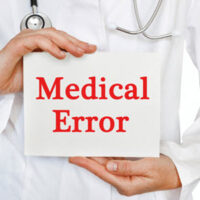5 Types Of Medical Errors That Lead To Malpractice Claims

Trusted to provide accurate care, people turn to medical professionals for diagnoses and proper treatment. Unfortunately, mistakes can happen, and when they do, the results can be life-altering. Understanding the most common types of medical errors can help individuals recognize when a claim may be warranted.
An experienced Baltimore personal injury lawyer can help you pursue compensation for your injuries, lost wages, and emotional suffering. If you or someone you care about has experienced any of the following five kinds of medical mistakes, connect with an attorney. Medical negligence should never be ignored, your health and future matter.
#1 Misdiagnosis or Delayed Diagnosis
One of the most frequent causes of malpractice claims is misdiagnosis. When a doctor fails to correctly identify a medical condition, or takes too long to do so, the patient may miss a critical window for effective treatment. For example, a Maryland patient presenting with chest pain might be diagnosed with acid reflux instead of a heart attack, resulting in a dangerous delay in life-saving intervention.
In these cases, a malpractice claim may succeed if it’s proven that a competent physician, under similar circumstances, would have arrived at the correct diagnosis sooner.
#2 Surgical Mistakes
Surgical errors are another serious form of medical negligence. These include wrong-site surgery, performing the wrong procedure, leaving surgical instruments inside a patient, or causing avoidable injury to surrounding tissues or organs.
In one well-known Maryland case, a patient underwent back surgery and later discovered a surgical sponge had been left inside their body, causing infection and requiring additional surgery. When a surgeon fails to follow accepted safety protocols, such errors can lead to successful malpractice claims.
#3 Medication Errors
Mistakes involving prescription drugs are alarmingly common and can include administering the wrong drug, incorrect dosage, or harmful drug interactions. Medication errors may occur in hospitals, pharmacies, or even within a doctor’s office. For instance, a Maryland patient being prescribed the wrong blood pressure medication could suffer a stroke or other severe complication.
To bring a claim, it must be shown that the healthcare provider failed to exercise reasonable care in prescribing or administering the medication.
#4 Anesthesia Errors
Precise management is required when it comes to anesthesia. Too much can lead to brain damage but too little can result in a patient waking up mid-surgery. Errors can also involve failing to properly review the patient’s medical history for potential complications.
A case might involve an anesthesiologist in Baltimore who neglected to recognize a patient’s allergy to a particular drug, leading to anaphylaxis and long-term injury. These high-risk errors can support strong malpractice cases due to the clear standards of care involved.
#5 Failure to Obtain Informed Consent
Before performing a medical procedure, healthcare providers must inform patients of the risks and alternatives. If a patient experiences a known complication they were never warned about, the provider may be liable. This is true even if the procedure was performed correctly.
Could you access recovery funds following a medical mistake? Have a conversation with the legal team at Iamele & Iamele, LLP. Contact us to book your confidential appointment.

